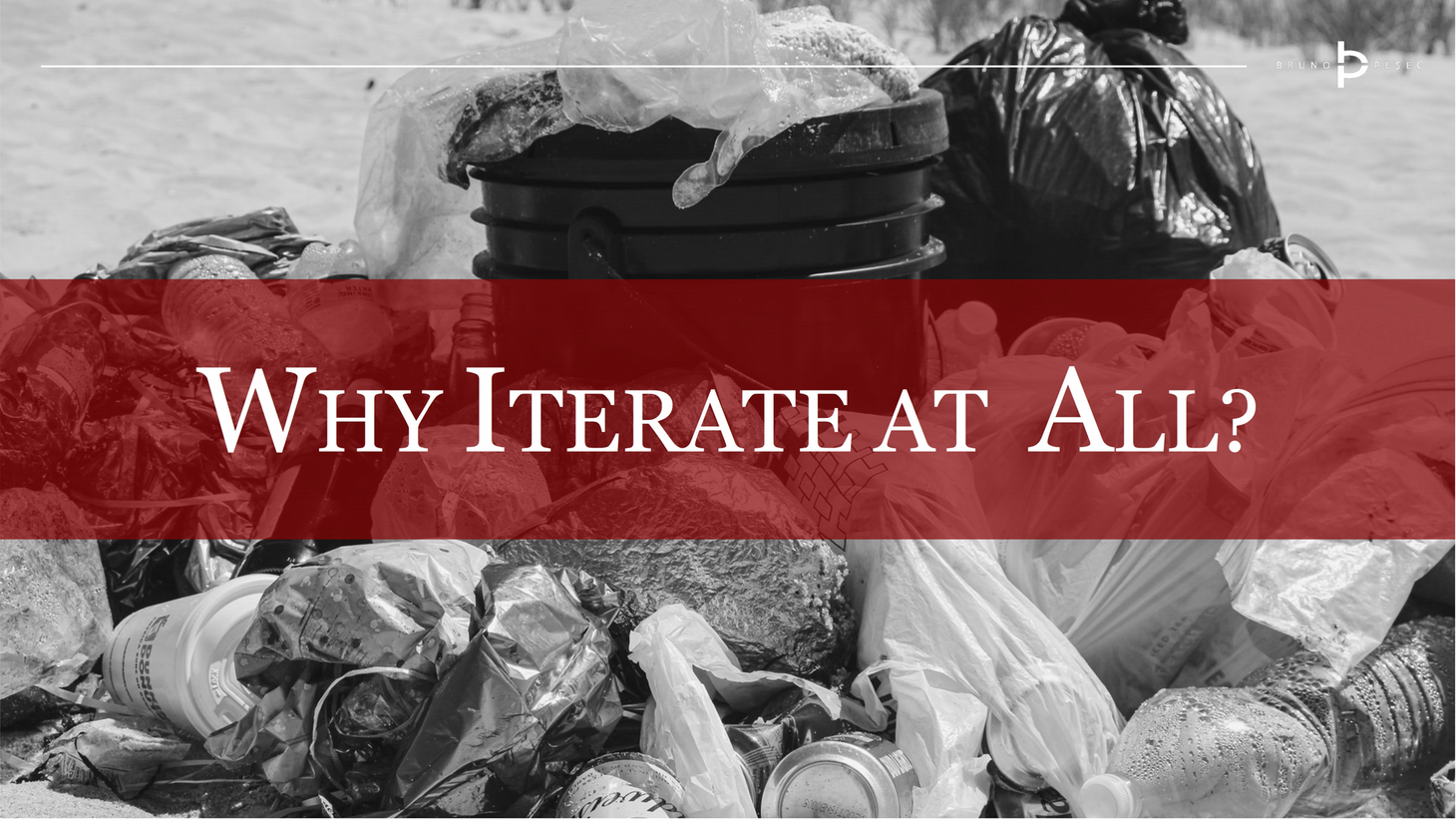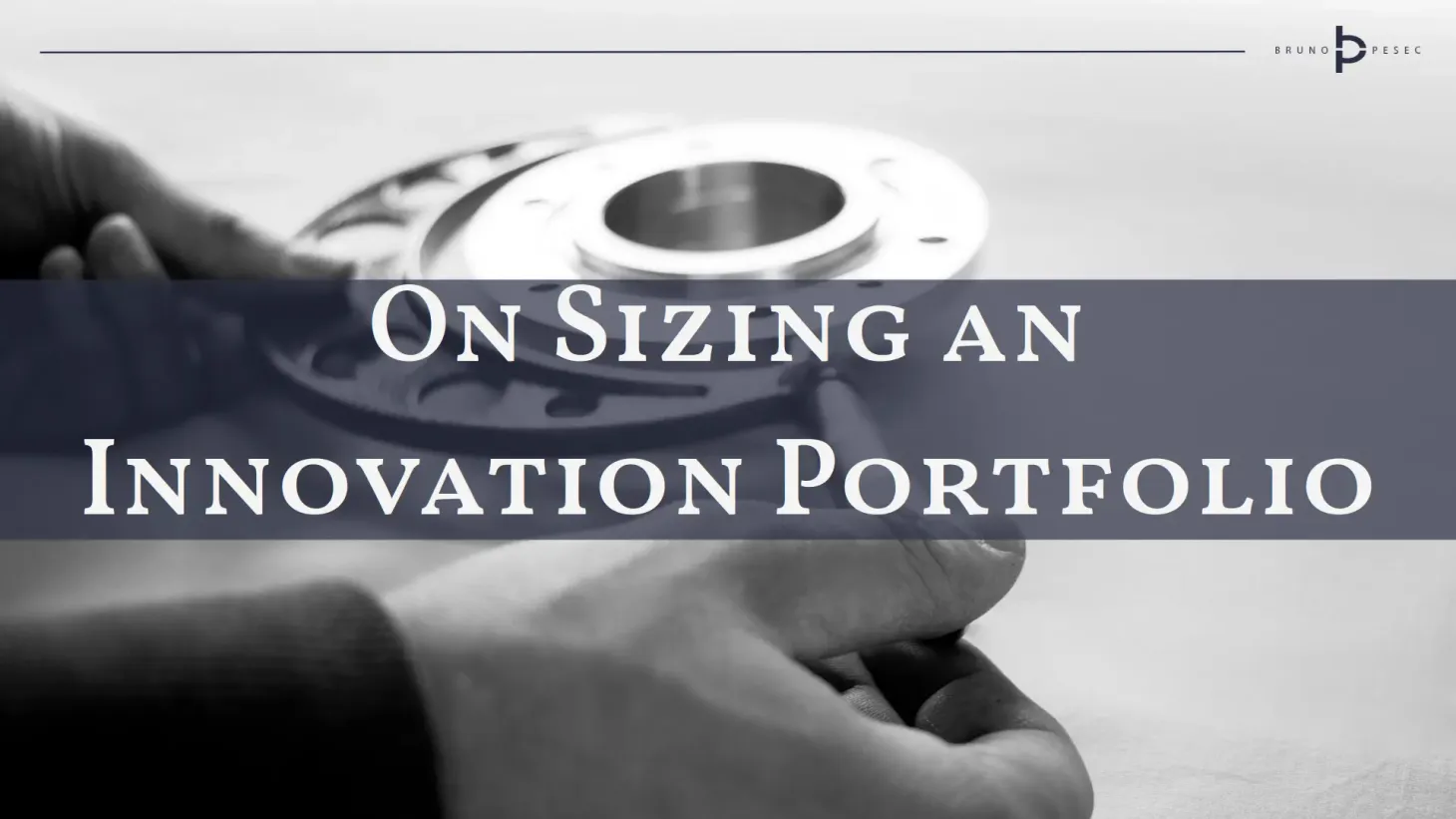Why iterate at all?
Don't accelerate waste.

I’m a proponent of iterative way of work for multitude of reasons. When I used to work as a design engineer that was my standard modus-operandi, and I haven’t had much trouble with transposing that thinking to business and management processes.
What I noticed is that most people focus on speed gained by adopting more iterative way of work. That certainly is true, but also misleading if it’s a sole focus. Running faster in the wrong direction is still running in the wrong direction.
That’s why I focus on following three key benefit areas.
Faster value creation
Since we have reduced scope, we can focus on delivering a smaller amount of value – both for us and the customer. That implies that we can start capturing value back sooner as well. Money today is more valuable than money in the future.
Each iteration has a beginning and an end. It should also have a specific objective. If it doesn’t then you are just doing continuous work. Something of value must be created by the end of each iteration.
Innovation teams and corporate startups are expected to bring some value back to the home organisation, fast. If they’re working on something outside of the core, it’s unlikely they’ll have any financial returns fast. But they can deliver the learning they have accumulated, and that other parts of organisation can use to tweak their products, services, and processes.
Reduced risk
Reduced scope should also have reduced investment. Smaller investments hurt less if something turns out to be a dud. It also allow the organisation to remain flexible with future investments.
Shorter iterations increase our flexibility and adaptability. It’s impossible to foresee the future, but being rigid in the wrong moment will result in brittleness. It's easier to change course when iterations are shorter, and it's cheaper to abandon things if we have already created value.
We also have more opportunities to say no and rethink the project. Should we stop it? Pivot perhaps? Having an option to abandon the project is both valuable and empowering. Market conditions change, competitors come and go, but none of them follow your calendar.
Better learning
When work is done in shorter iterations then all bottlenecks become painfully visible, painfully fast. Resolving their root causes creates lasting value to the organisation. Overcoming such issues also develops capabilities. Win-win!
Short iterations mean short feedback loops, which enables us to shape the project to be even more valuable and impactful. Imagine it as three interconnected feedback loops. First one is for the iteration itself, second for the whole project, and third one for the organisation.
Short iterations mean there can be more of them. That frees us to try things that perhaps we otherwise wouldn’t dare to, fearing to spend too much time and money. When we have a tightly defined iteration we can go and play, stretching our mind and boundaries within which we operate.
Accelerating waste
If we cannot achieve three of the above, then all speed gains were for naught.
P.S. Donald Reinertsen has written three stellar books on the topic. I suggest starting with "The principles of product development flow: Second generation lean product development."
Bruno Unfiltered
Subscribe to get the latest posts delivered right to your inbox. No spam. Only Bruno.




